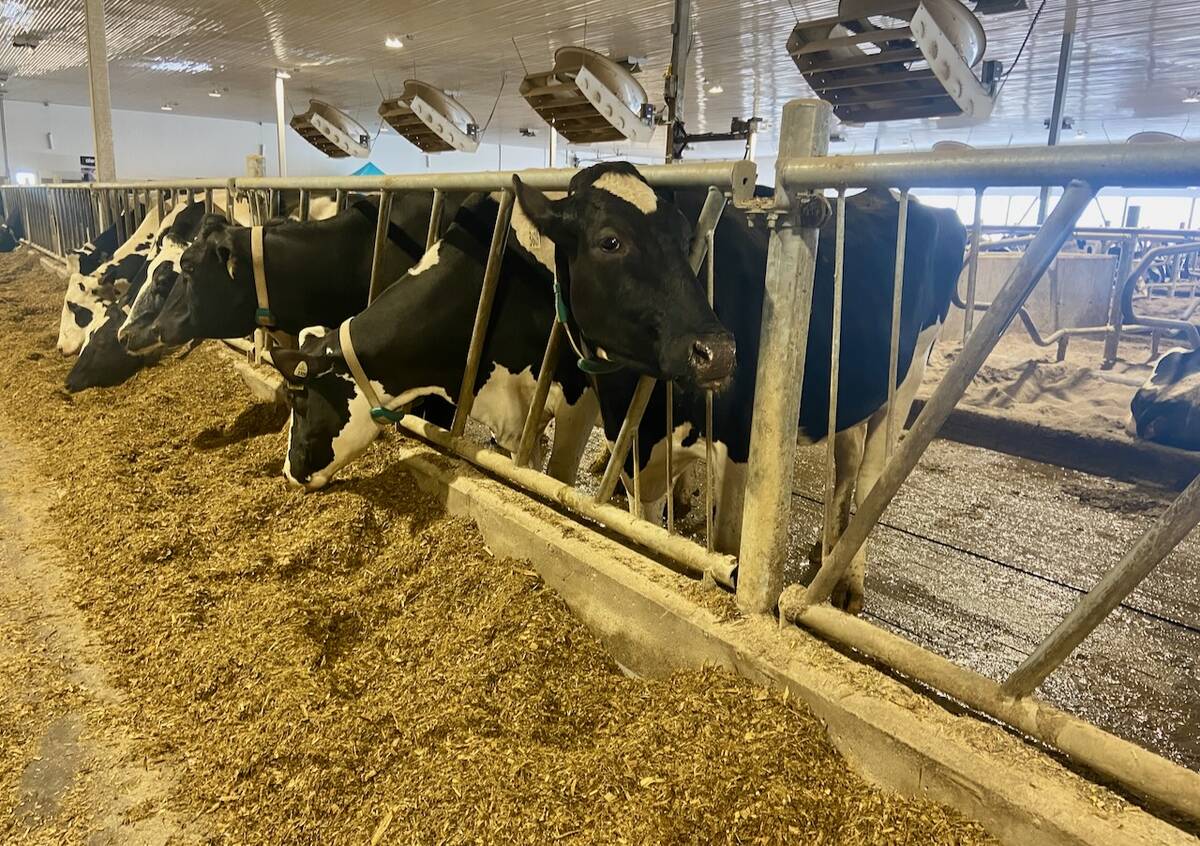HAWARDEN, Sask. – Sales routes are colour coded by salesmen on a road map of Saskatchewan, while alphabetized town names and their potential businesses are pinned to a bulletin board in the offices of Perry Industries.
Fresh from a grand opening in July that attracted 300 people and bolstered by the first month’s 25 sales, the new company’s two salesmen are hitting the road this summer in search of farmers, small businesses and others in need of labour saving devices.
The company, whose slogan is “making life a little easier,” sells a storage rack, dust remover for grain bins, deck leveller, grain sampler and saw horse.
Read Also

U.S. farm group supports supply management
U.S. grassroots farm advocacy group pushing new agriculture legislation that would move towards supply management like Canada has for dairy industry
All are the brainchild of father and son designers Darryl and Kevin Perry.
Darryl, the company president and general manager, said the devices come from his own experience farming in this central Saskatchewan community.
“These are things I needed, I went looking for and couldn’t find them,” he said.
An old classroom at the 14,000 sq. foot Hawarden school that Darryl once attended now serves as a showroom for the company. Blackboards remain in many of the converted rooms, fully used for assembling, painting and storing the products.
In addition to father and son, daughter Valarie, a commerce student, has also joined the business in marketing for the summer, while her mother Wendy works in the office. Seven full-time and four part-time employees staff the manufacturing plant.
Kevin, a graduate in mechanical engineering technology, left a job at a swather manufacturer to join the family business.
He bought a house for his young family in this community of 75 residents and likes having input into all facets of the business, from engineering design and testing to cost analysis and feasibility studies.
He described the products as simple yet practical.
“You don’t need a complex piece of equipment to do a job well,” he said. “On the farm, you are always taught to work with what you’ve got.”
He and Valarie describe their father as determined, with a lot of business savvy from farming and other business ventures.
“Dad likes to work for himself,” said Valarie, who said her father takes risks, both financially and personally.
“He’s good at taking an objective look at something without blinders on,” Kevin said.
Hawarden was an obvious choice for the family but also a good choice economically, said Darryl, who cited lower land and labour costs in rural Saskatchewan. Workers are drawn from the local farms and communities, he said.
Those rural opportunities also present challenges, including location on a secondary highway and the often slower pace of Saskatchewan suppliers in providing quotes and products.
Darryl said his operating costs in Saskatoon would be triple what they are in Hawarden and probably double that again in Calgary or Edmonton.
“There is a tremendous opportunity to do stuff like this in Saskatchewan,” he said.
“If you never try, you never will succeed at anything. The best way to fail is not to try anything,” said Darryl.
He operated his farm similarly, rarely growing board grains and preferring mustard and lentils when markets looked favourable.
The Perrys have 68 new products on the drawing board, but have released only five to market. They hope to add and subtract new products each month, depending on sales and demand.
Future inventory could include an insulated dog house, a hexagonal picnic table and prefabricated sheds.
For now, the Perrys are pitching lower ticket items like the $25 deck levellers or $89 sawhorses to get people to try them.
“We want to build a strong business on what we have. It might not be one but might be a mix of products to establish a business,” said Darryl.
Their first dip into the sales market came at Farm Progress Show in Regina. There they faced many questions and challenges from those who think they have a better idea.
Kevin points out that Perry took its products from the drawing board and farm shed, through patent protection at $6,000 per product, followed by extensive testing, then into the marketplace.
Darryl does not expect a profit immediately, but hopes to establish a good market for products in Western Canada in the first year, Canada in the second and the United States in subsequent years.
He hopes to get the products into industrial supply, building supply and hardware stores and increase internet sales through www.perryindustries.ca.
Darryl, who has financed the venture himself with $275,000, admits launching a new business is unnerving at times.
“There’s up days and down days. It’s new and I can’t say every day I feel comfortable.”














